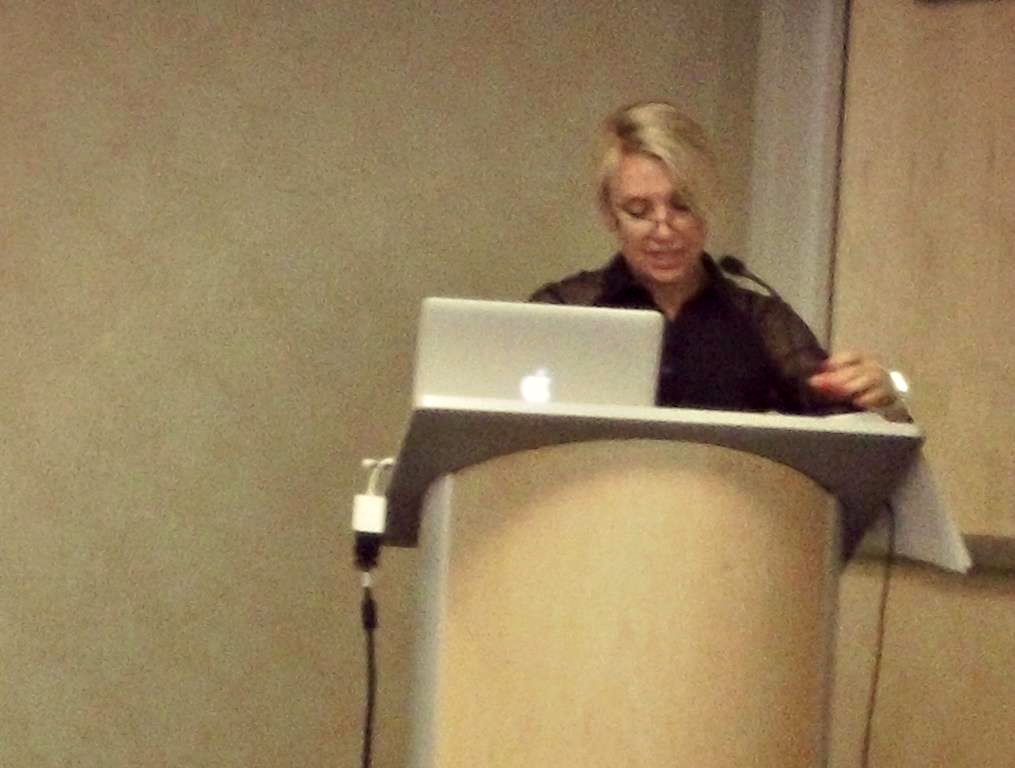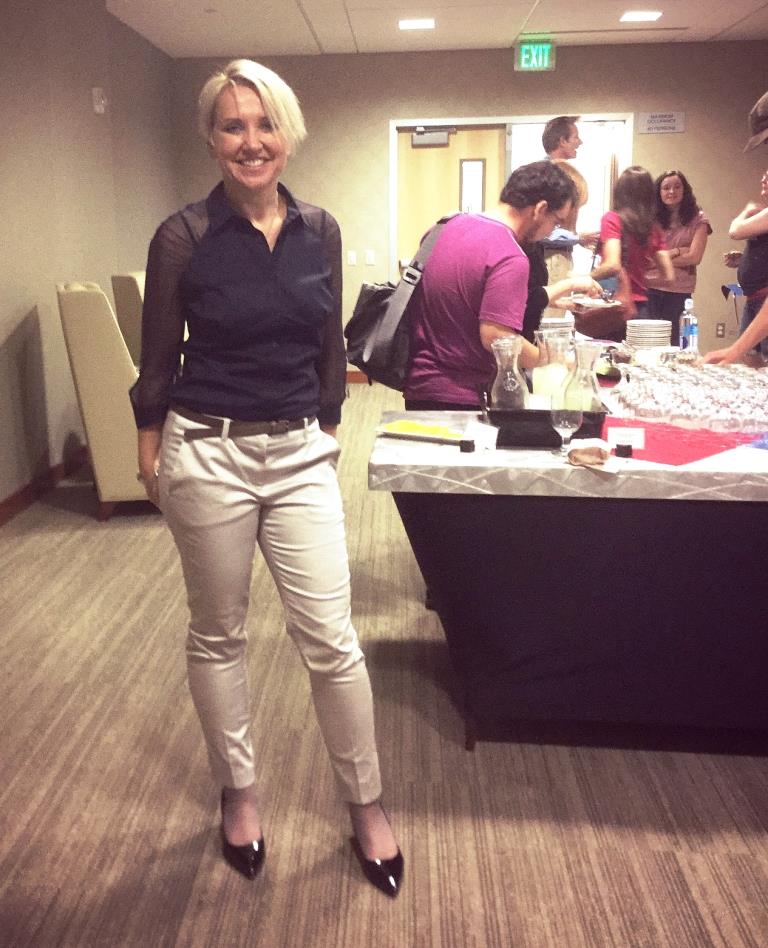by Communications Intern Ashley Alfirevic
Tom Buchanan of The Great Gatsby may be one of the most disliked characters in the history of American Literature. His hateful attitudes are apparent from the outset with his praise of the (misnamed) Rise of the Colored Empires, saying, “Well, it’s a fine book, and everybody ought to read it. The idea is if we don’t look out the white race will be – will be utterly submerged. It’s all scientific stuff; it’s been proved.”
While Fitzgerald used Tom Buchanan as a vehicle to condemn eugenics, many other canonical authors and intellectuals of the early twentieth century openly embraced Francis Galton’s idea that genetics should be used as a “better breeding science which deals with all influences that improve the inborn qualities of race.”
Dr. Ewa Luczak, Associate Professor of American Literature at the Institute of English Studies at the University of Warsaw, discussed the prevalence of eugenics in early twentieth century thought and its influence on two of the period’s most established authors. Her presentation, “‘A Truly Angelic Society’: Eugenics and American Pre-World War II Literary Imagination,” left me both intellectually confounded and deeply disturbed. To think two authors from my very first American Literature class – Jack London of “To Build a Fire” or Charlotte Perkins Gillman of (one of my personal favorites) “The Yellow Wallpaper” – were such proponents of “the betterment of the human race” left two of my icons shattered.
Dr. Luczak revealed that eugenics was considered a scientific, even socially progressive, norm in the United States before World War II. “Forward-thinkers” from Harvard, Stanford, and the University of Chicago all thought of this racial hierarchy as an intellectual rejection of the outdated Enlightenment, with its focus on human brotherhood, and Christianity, with its belief in creationism. Promoters endorsed either Negative Eugenics – anti-miscegenation laws or sterilization – or Positive Eugenics – propaganda for fitter families and scientific measurements that proved racial superiority.
Luczak shared her personal struggle with these subjects with the audience. She detailed her feelings of shock when she first encountered some of her research, and it’s apparent how committed she is to exposing the eugenic tendencies underlying some of our most important national works.
Though literature classes study Jack London for his place in the Naturalism movement, his beliefs in the natural world extended so far as racial Darwinism. His book The Kenton-Wace Letters, written with Anna Strunsky, is an exchange of debating notes between Wace, who encourages human breeding, and Kempton, who believes in romantic love. London wrote Wace’s parts and viewed marriage as a rational, domestic selection, and later broke off his romantic involvement with Strunsky because of her Jewish heritage. His The People of the Abyss chronicles the life of the poor in London’s East End, based on his immersion in the slums for research. In his letters, London describes the poor as “beasts,” saying they had degraded into a new species of human more akin to the animal world than civilization. His post-apocalyptic The Scarlet Plague conveys similar themes of eugenics.
While courses normally praise Charlotte Perkins Gillman as a leading American writer during the first wave of feminism, her focus on pure sociology quickly turned into inhumane gynocentric eugenics. Gillman latched onto ideas promoted by “progressive” eugenicist Lester Ward, who regarded women as the true racial leaders who had the power to control human breeding by their selection of mates. Building on this, she wrote The Crux as a novel of Positive Eugenics choices, saying women should marry for “love and good judgment.” However, it is her trilogy of a female utopia that horrifyingly allows for extreme forms of Negative Eugenics. The first of the trilogy, Moving the Mountain, explains that a more “socially progressive” United States has been reached because, “We killed many hopeless degenerates, insane, idiots, and real perverts after our best methods of cure.”
Dr. Luczak’s presentation revealed a pervasive belief in the United States that two of academia’s most revered authors, Jack London and Charlotte Perkins Gillman, endorsed eugenic ideologies in their texts. Dr. Luczak’s talk introduced a shift in my perspective when thinking about these particular authors and what they wrote, authors I read in one of my formative literature courses. I’m still struggling with how to understand this new perspective, and how I might apply it to my future reading. There’s value in looking more closely and discovering the blind spots we might find, in ourselves and in our literature.

